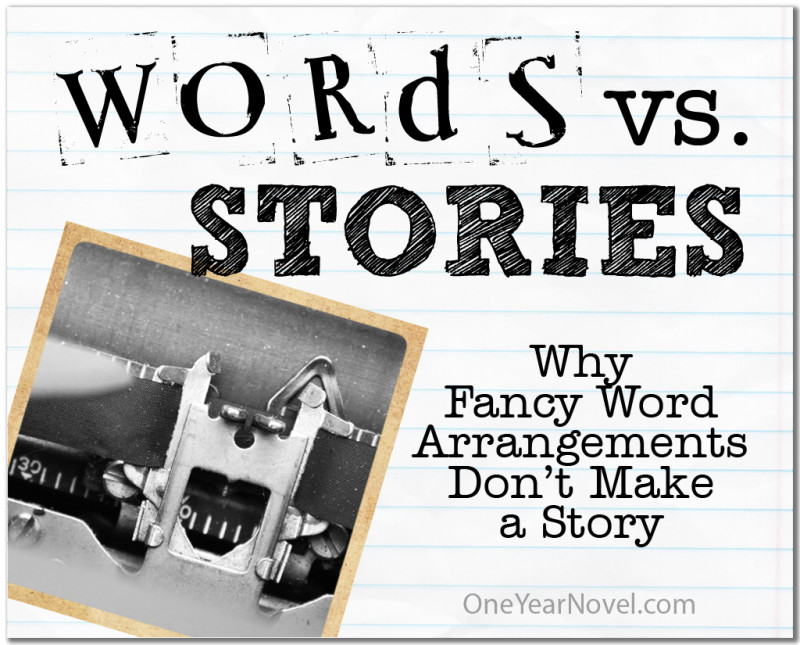Writing Characters When You Don’t Hear Voices in Your Head
 Miguel Flores, Guest Contributor
Miguel Flores, Guest Contributor
People have told me their characters “talk” to them. These fictional characters use our brains as home base but are otherwise free to explore both their world and ours. When these vagabond ghost squatters re-enter our brains, they kick up their feet, scatter our neatly organized plot bunnies, and babble about their lives or rudely commentate on ours. From what I understand, this phenomenon is quite common among storytellers.
Me, I don’t hear my characters at all. I imagine the sound of my mind is like the faint hum of an empty seashell.
But, I want people to actually enjoy my writing and I know making every character in every story a copy of me is a bad idea. I have to make sure my characters still sound like… them.
My solution: why look for new voices if you can just cheat and rip off old ones?
1. There are lots of people you can rip off, so rip off as many as you can.
My childhood hobby was filming parody Billy Mays commercials with my sister. We moved between voices, since we didn’t know how to edit video. There was the hippie from the 60s selling microphones disguised as hairbrushes, an old southerner selling paper towels as towel papers, and a Latino man with a raspy voice enacting soap opera teasers. (By the way, stereotypes are bad—but they sure do make accents fun.)
We also loved to perform movie scripts, verbatim, on road trips. Some iconic characters are fun to copy (I’m Buzz Lightyear of Star Command!). Other characters are bland and only good for making fun (I’m Edward. I sparkle.).
What I’m driving at is: If you struggle with character voice, don’t start with one. Start with all the voices you can get your hands on.
I’m not good at impersonations. My voice cracks in the wrong places and my Indian accent sounds too Chinese. (Also, even though this exercise is great for practice, it’s really bad for lawsuits). But here’s what this taught me: It isn’t just actors who “make” characters come alive. Good characters have unique ways of talking, moving, and living. Thankfully, you don’t have to be good at mimicry to know what they should sound like. We know Christopher Reeve and Christopher Walken would say “I love you” very differently. One would say it with a straight face and regal undertone; the other would slide three pauses into a phrase where only two are physically possible.
Need inspiration? If you want to read good voice, I recommend children’s books. I find that adult writers who have to force their minds into the perspective of a kid usually understand brain switching.
2. Figure out if your character is Bob Reeve or Bob Walken.
Voice is just an extension of who we are—a window to the soul. Don’t limit yourself to the words and what they sound like.
Here are some questions you should ask about Bob the Generic Hero:
● “Where is he from?”
Even within a single country there is regional slang and accent. This usually has to do with…
● “What is his heritage?”
The people who occupy a piece of land usually have history with that land. Our words are just derivatives of things our grandparents used to say. (This matters if you’re making up your own world too. Don’t be lazy!)
● “What are his biases and beliefs?”
What he thinks about people will determine how he speaks to them. What he thinks about God will determine whether he treats the name with respect, dismissal, love, or anger.
● “What does he value?”
We talk a lot about the stuff and people we care about, and we talk about them a lot more nicely than the stuff we hate.
3. “Does he have a speech impediment?” (the external stuff)
You ever notice that one person whose laughter fills the entire room and drowns everyone else out? You ever wonder if that person might actually be you? It sounds crazy to quiet people, but a lot of people who laugh loud can’t actually help it. When you develop your character, ask yourself how he forms his words—how he physically makes sound come out of his mouth. Does he tend to take a sharp breath before speaking? Maybe his words come out nasally. Does he have a thick tongue? Maybe he has to pause more often and speak a little slower. Does he have a lisp? Maybe he tries to avoid the letter s.
However, don’t go crazy. Unless you’re Brian Jacques and really know what you’re doing, “Gurme sum pie, ma’” will annoy readers more than you think. When talking voice, the classic example is Mark Twain, yet I would actually advise not imitating Huckleberry Finn. Study it as a fantastic example, but please don’t think you have to do what he did.
So much can be drawn from just living and meeting people. Pay attention to the people around you, listen to them talk (a good idea anyway). It is entirely possible to create a distinct and genuine voice using proper grammar and normal English words. It’s a lot harder to build that voice on stereotypes and forced ideas.
4. Build on what you know.
Usually, the first trap we fall into when writing voice is trying to be unique. In an attempt to make our characters memorable, we come up with contrived ways for them to say things they probably wouldn’t, do things they’d be uncomfortable with—that aren’t true to them (or us).
Recently, I watched a show in which an Indian actor wanted a role in a film. To get the part, he had to do an Indian accent, even though his normal speaking voice had no trace of the accent whatsoever.
Respect what you know in your gut your character needs to sound like.
5. Get out of the way.
Once writers know who their characters are, the building blocks for the voice are often already there. Fancy words and linguistic tricks distract us from actually picking up those blocks and building something. Most of the time, we are our own worst problem. Poor Sally is trying to say what she wants to say, but I keep butting in because “This needs existential monologue!” or “This needs witty banter!” Although it’s okay to have a distinct style of writing, we need to be wary of projecting our personality onto our characters. They’re ours, but they aren’t us.
Stop micromanaging; let the characters mess up. Writing is:
- Intuition.
- Execution.
- Murder.
- Repetition.
In other words, you (or your hero) get a really good idea and you follow your gut. Your brain wakes up the next day and destroys the thing. Timidly, your gut tries again, your brain murders again, and they keep fighting until the gut gets it right (or the brain falls asleep).
Don’t let this process scare you. It takes a baby one thousand attempts to say her first word. It takes her two more thousand more to realize that “mommy” doesn’t count for both parents. It’ll take a lot of experimenting and a lot of rewriting just to get your characters to say one thing right. But that’s okay. They’ll get it eventually so long as you give them time to grow.
You’ve been doing this your whole life.
We are all actors. In fact, we’ve been acting since we were mini-humans, and some of us never stopped. Sometimes we act our parents, copying their movements while ignoring their political beliefs. Sometimes we act our friends, trying to fit into our social circles while secretly wishing we could watch Netflix instead. Sometimes we even act ourselves, trying to live up to the image everyone else has of us. Much like ourselves, the way our characters speak reveals how they think about others and themselves.
Now: give both of yourselves permission to speak.
…
What literary character has a “voice” you love? Why?
…
About Miguel
Miguel Flores has been a member of The One Year Adventure Novel community long enough to be considered an “oldie.” He enjoys answering story questions with reference to deceased writers and food. Once he finishes his B.S. in Business Information Management, he plans to start up a writing consultation business. When he’s not busy working or studying, this Floridian poet spends his days with a cup of tea in his hand, a cat in his face, and a lot of ink on his fingers.




“I imagine the sound of my mind is like the faint hum of an empty seashell.”
Now that is a fabulous simile. And I’m pretty sure that’s what my mind sounds like too.
This is one thing I’m struggling with in my writing right now: a few of my characters have my voice. 🙁
I’m trying to make them distinct, but I still have not figured it out yet.